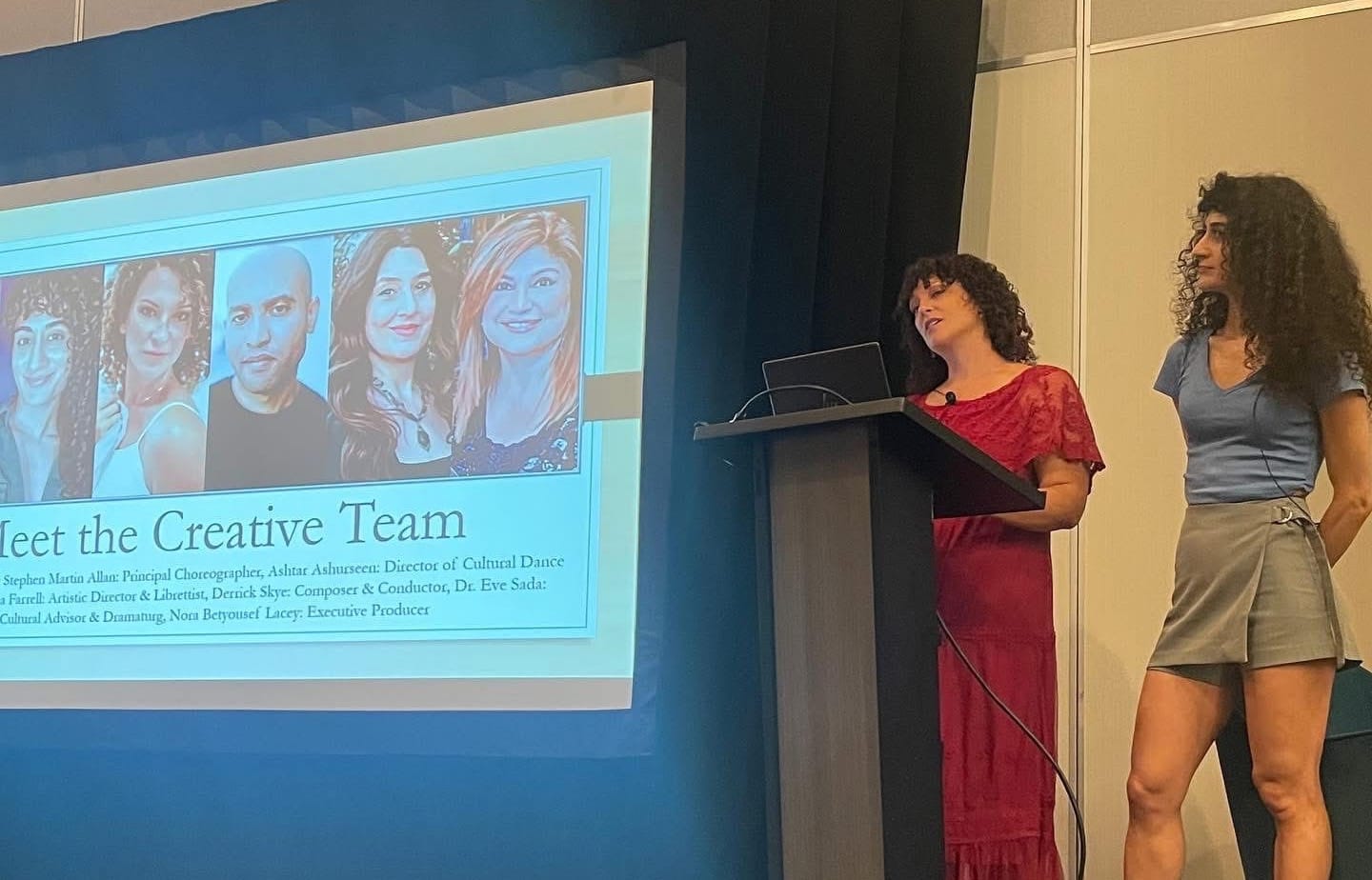The Assyrian Arts Institute (AAI), the U.S.-based organization founded in 2017 by Assyrian-American entrepreneur Nora Betyousef Lacey to champion the artistic legacy of Assyria, is advancing one of its most ambitious initiatives yet: the transformation of the Epic of Gilgamesh into a full-length opera.
The planned 120-minute production seeks to animate the legendary journey of the demigod king of ancient Uruk, weaving together motifs of seduction, war, love, and humanity’s timeless quest for immortality. Structured as an operatic prologue followed by two dramatic acts, the AAI says the work “promises to captivate audiences and resonate across generations.”
As part of its development process, the Institute hosted a free preview of select scenes on November 20 at the Harvard Museum of the Ancient Near East in Cambridge, Massachusetts. Funded primarily by Harvard University, the event reached full capacity within three days, according to the AAI.
A recording from a performance at a fundraising event in September. AAI/Youtube
The preview included remarks by Eckart Frahm, John M. Musser Professor of Near Eastern Languages & Civilizations at Yale University. Frahm discussed the original Gilgamesh tablets and the discovery of King Ashurbanipal’s Royal Library at Nineveh, drawing from his recent book, Assyria: The Rise and Fall of the World’s First Empire.
The Creative Team
The opera brings together a distinguished team of artists and scholars. Nora Betyousef Lacey, Founder and Executive Director of the AAI, serves as the project’s executive producer. The music is composed and conducted by Derrick Skye, whose works have been commissioned or performed by leading ensembles such as the Los Angeles Chamber Orchestra, the London Philharmonic, the Netherlands Philharmonic, and Canada’s National Arts Centre Orchestra. Serving as Artistic Director and Librettist is Diana Farrell, an Assyrian artist and the Founding Artistic Director of Lyric Opera of Orange County. Rounding out the core team is Dr. Eve Sada, an Assyrian ethnomusicologist who contributes as Dramaturg and Cultural Advisor, ensuring the production’s cultural authenticity and depth.

Los Angeles Premiere
The AAI emphasizes that live performance is essential to the project, offering an immersive environment that “fosters a stronger emotional bond and sparks the imagination of viewers.” Citing research on audience engagement, the Institute notes that people connect more deeply with live artistic experiences than with recorded or digital media.
With California home to one of the world’s largest Assyrian communities, the Institute has chosen to premiere Gilgameshat the Cerritos Center for the Performing Arts in Los Angeles on March 28, 2026, followed by plans for an international tour.

While the premiere highlights the Assyrian diaspora, the AAI stresses that the opera is intended for audiences everywhere. “In this critical moment, as Assyrians face an uncertain future in their homeland, the goal is to expand and amplify creative expression, making art a powerful tool to keep the Assyrian identity visible and vibrant,” the Institute writes.
The Epic of Gilgamesh, among humanity’s oldest surviving literary works, was inscribed on twelve cuneiform tablets unearthed during 19th-century excavations of ancient Assyrian sites. These tablets, once housed in the famed Library of King Ashurbanipal, are today preserved at the British Museum in London. The opera seeks to bring this world treasure to the stage, renewing its resonance for modern audiences while celebrating the enduring heritage of Assyria.
Editor’s note: This article has been updated to correct an error in the original version about the venue shown in the screenshot and video clip.










